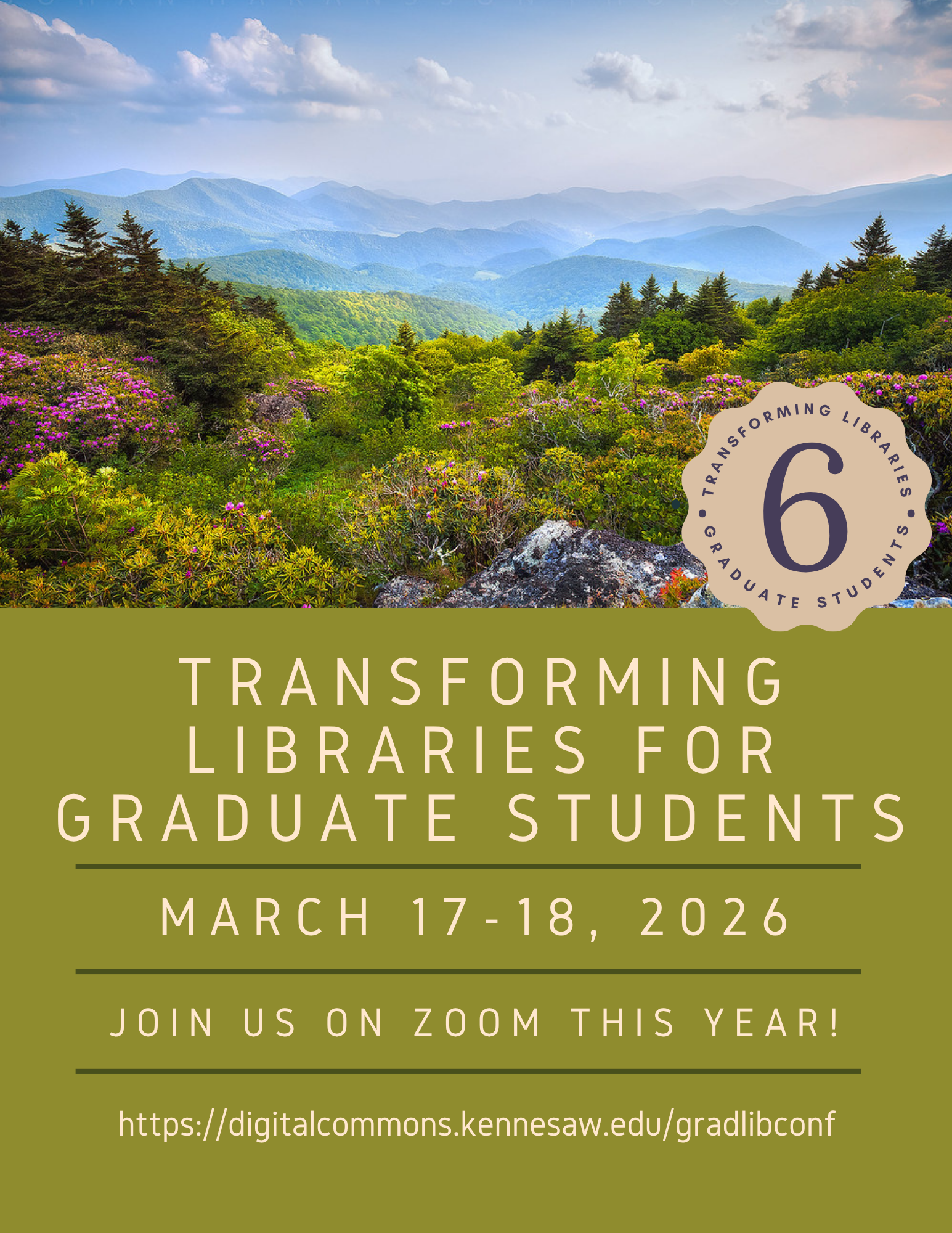Start Date
3-17-2022 2:00 PM
End Date
3-17-2022 3:00 PM
Keywords
Mentorship, Professional Development, Career Coaching
Description of Proposal
A review of library science journals reveals a dearth of literature on the topic of professional mentorship services offered by academic librarians for graduate students in the humanities and social sciences. The literature that does exist tends to focus on library and information science or other professionally-oriented programs. Mentorship is crucial for the professional success of all categories of graduate students; yet, by focusing on one of these groups, we fail to recognize the shared challenges and unique needs of students across the spectrum of graduate education.
Academic librarians can play a critical role in helping all graduate students chart their professional trajectory. For graduate students in the humanities and social sciences, libraries can offer training for a variety of future careers as researchers, teachers, and cultural heritage professionals. For these graduate students, this critical role is often an invisible and underappreciated aspect of a student’s graduate training. Libraries can fulfill a similar role for LIS graduate students, but they often do so in a more structured manner. Credit-bearing internship programs and student employment provide on-the-job training, but do not always help students navigate the job market. Formal mentoring programs offered by professional associations like the RUSA History Section, Asian Pacific American Librarians Association, and other organizations address some of the realities of the job market/job search process.
Panelists will explore these realities by sharing their experiences of participating in formal programs and informal mentoring arrangements. They will reflect upon how these relationships have helped some graduate students gain a clearer idea of career paths available to them and will assess the challenges that students face when navigating these various paths. Based on their experiences, the panelists will demonstrate the need for multiple approaches that address the unique needs of individual students or academic/professional programs. Participants will receive a set of questions to brainstorm ideas to design customized programs that will serve the professional needs of the graduate students in their institutions. After the panel presentation, participants will be able to:
-
Identify mentoring opportunities
-
Develop a plan for creating a student-centered mentoring program for their graduate students
Librarians as Mentors: A Student-Centered Approach to Graduate Training
A review of library science journals reveals a dearth of literature on the topic of professional mentorship services offered by academic librarians for graduate students in the humanities and social sciences. The literature that does exist tends to focus on library and information science or other professionally-oriented programs. Mentorship is crucial for the professional success of all categories of graduate students; yet, by focusing on one of these groups, we fail to recognize the shared challenges and unique needs of students across the spectrum of graduate education.
Academic librarians can play a critical role in helping all graduate students chart their professional trajectory. For graduate students in the humanities and social sciences, libraries can offer training for a variety of future careers as researchers, teachers, and cultural heritage professionals. For these graduate students, this critical role is often an invisible and underappreciated aspect of a student’s graduate training. Libraries can fulfill a similar role for LIS graduate students, but they often do so in a more structured manner. Credit-bearing internship programs and student employment provide on-the-job training, but do not always help students navigate the job market. Formal mentoring programs offered by professional associations like the RUSA History Section, Asian Pacific American Librarians Association, and other organizations address some of the realities of the job market/job search process.
Panelists will explore these realities by sharing their experiences of participating in formal programs and informal mentoring arrangements. They will reflect upon how these relationships have helped some graduate students gain a clearer idea of career paths available to them and will assess the challenges that students face when navigating these various paths. Based on their experiences, the panelists will demonstrate the need for multiple approaches that address the unique needs of individual students or academic/professional programs. Participants will receive a set of questions to brainstorm ideas to design customized programs that will serve the professional needs of the graduate students in their institutions. After the panel presentation, participants will be able to:
-
Identify mentoring opportunities
-
Develop a plan for creating a student-centered mentoring program for their graduate students



What takeaways will attendees learn from your session?
Attendees will use the information presented to assess mentorship opportunities for various graduate students at their institutions.
Attendees will brainstorm informal and formal avenues for supporting the professional success of these students and will chart a course for implementation.
Attendees will understand the unique role that librarians can play in helping students identify and develop their career paths.